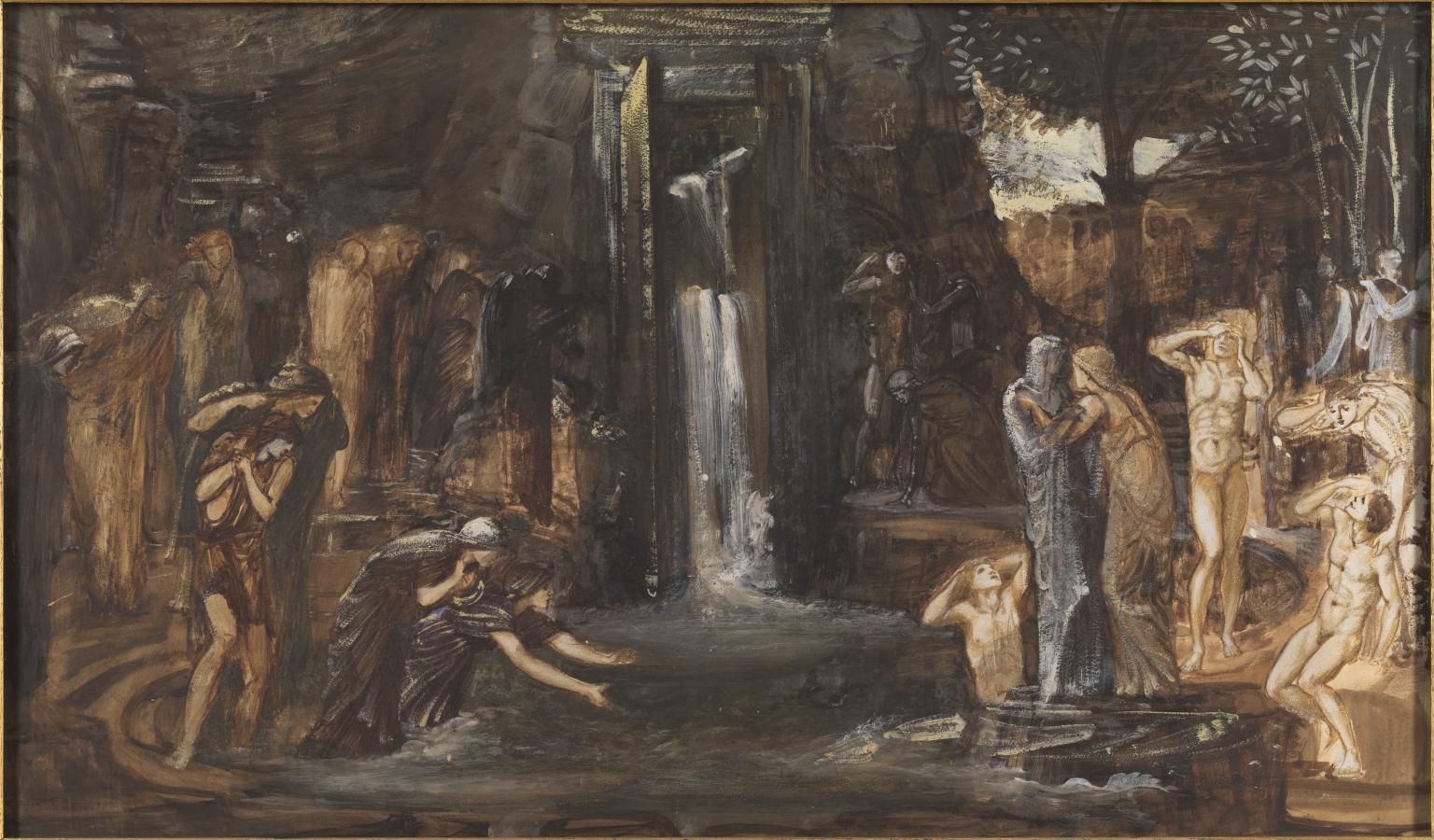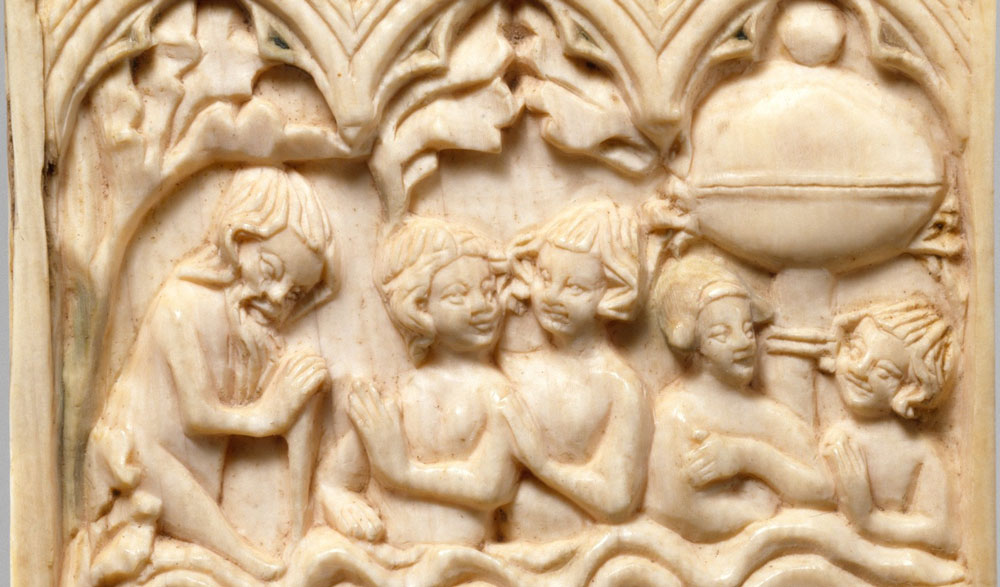 2019
2019
Fountain of Youth, by Sir Edward Coley Burne-Jones, c. 1873. Tate, Purchased 1919.
In the last few years radical life extensionists (also called immortalists or longevists) have made the news for some of their more unusual beliefs—earlier this year a startup offering $8,000 transfusions of young plasma to promote long life prompted the FDA to issue a warning that the procedure offered “no proven medical benefit.” Many life extensionists are wealthy men “who consider death undesirable and appear to have made so much money they require infinite life in which to spend it,” reports the Guardian. The longevist James Strole uses various “scientific” methods to promote his own longevity in anticipation of the day that medicine will solve all ills. He takes supplements and other pills, exercises regularly, eats moderately, takes a morning swim in a cold pool, after which he “he lies face-up on an electromagnetic mat that whirs silently against his body and ‘opens up the veins,’ and engages in a breathing regime that, he says, ‘balances the hormones.’ ” But life extension is about more than the physical body, because “what good is maintaining the body if not the mind?” So Strole has started taking pills called Cognitive. Others take a different approach:
To maintain a supple mind, the gerontologist Marios Kyriazis, who is in his sixties and heads the British Longevity Society, reads the newspaper upside down, and whenever that becomes too easy, he reads the newspaper upside down and reflected in a mirror. Think of it as an alternative to Sudoku.
What good is all of this? The current life-extensionist strategy is twofold. First, achieve a “wellness foundation,” Strole says. Second, stay alive until the coming gerontological breakthrough. All that is required is to “live long enough for the next innovation,” and presuming you do, “You can buy another twenty years.” Twenty years here, twenty years there, it all adds up, and suddenly you’re three hundred.
 1786
1786
Detail from plaque with the Fountain of Youth, France, c. 1320–40. The Metropolitan Museum of Art, The Cloisters Collection, 2003.
In 1786, Scots Magazine published Dr. Anthony Fogerhill’s “Observations on Longevity.” Fogerhill, a fellow at the Royal Society, sought to “collect into one point of view the memorable instances of long-lived persons, whose ages are recorded.” Fogerhill looked for patterns in his data set of hardy humans and determined that certain factors contributed to delayed death. He found that, in the early Christian era, Italy was “peculiarly propitious to longevity,” but that the long-lived could be found “in almost every quarter of the globe,” suggesting that the connection between climate and longevity had been much exaggerated. He also dismissed correlations between wealth or occupation and long life, finding that those in diminished circumstances could counter the negative effects of poverty through plain eating and country living. From his research and drawing on ancient Greek medicine, Fogerhill identified the six so-called non-naturals as factors contributing to longevity: 1) air and climate, 2) motion and rest, 3) secretions and excretions, 5) sleep, and 6) affections of the mind. He had this to say about number six:
The due regulation of the passions perhaps contributes more to health and longevity, than that of any other of the non-naturals. The animating passions, such as joy, hope, love, &c. when kept within proper bounds, gently excite the nervous influence, promote an equable circulation, and are highly conducive to health; while the depressing affections, such as fear, grief, and despair, produce the contrary effect, and lay the foundation of the most formidable diseases.
From the light which history affords us, there is a great reason to believe that longevity is in a great measure hereditary; and that healthy long-lived parents would commonly transmit the same to their children, were it not for the frequent errors in the non-naturals, which so evidently tend to the abbreviation of human life.